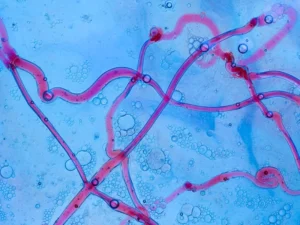From mutant genes to phenotypes! The mission of PHI-base is to provide expertly curated molecular and biological information on genes proven to affect the outcome of pathogen-host interactions. Information is also given on the target sites of some anti-infective chemistries.
PHI-base is a web-accessible database that catalogues experimentally verified pathogenicity, virulence and effector genes from fungal, Oomycete and bacterial pathogens, which infect animal, plant, fungal and insect hosts. PHI-base is an invaluable resource in discovering genes in medically and agronomically important pathogens, which may be potential targets for chemical intervention. In collaboration with the FRAC team, the PHI-base also includes antifungal compounds and their target genes.
Each entry in the PHI-base is curated by domain experts and is supported by strong experimental evidence (for example, gene disruption and gene complementation experiments) and literature references in which the original experiments are described. Each gene in the PHI-base is presented with its nucleotide and deduced amino acid sequence and a detailed description of the predicted protein’s function during the host infection process. To facilitate data interoperability, we have annotated genes using controlled vocabularies and links to external sources (Uniprot, Gene Ontology terms, EC Numbers, NCBI taxonomy, EMBL, PubMed and FRAC).
